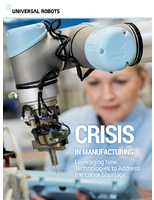ASTM International offers petroleum site training course.
Press Release Summary:
Based on the training presented to state regulators, the 2-day ASTM International course on risk-based corrective action at petroleum release sites will be offered for the private sector on May 12-13 and October 13-14, 2009, in Lansing, MI. It will include a copy of ASTM E1739, a fate and transport models compendium, and course workbook. Course can also be tailored to company needs and taught by ASTM International onsite.
Original Press Release:
ASTM Course on Risk-Based Corrective Action at Petroleum Release Sites
W. CONSHOHOCKEN, Pa., 24 November 2008 - In 1994, ASTM International published its RBCA standard for petroleum release sites. This standard became the model for a comprehensive national RBCA training program for state UST programs. USEPA and the oil industry funded ASTM International training for 49 states and territories, and many states implemented risk-based decision making into their UST programs.
ASTM International is offering a two-day training course for the private sector based on the training presented to state regulators. This course will be offered on May 12-13, 2009, and Oct. 13-14, 2009, in Lansing, Mich.
The cost for the course is $795 and includes a copy of ASTM E1739, Standard Guide for Risk-Based Corrective Action Applied at Petroleum Release Sites, a fate and transport models compendium, a course workbook and refreshment breaks. For a free brochure, contact Eileen Finn, ASTM International, West Conshohocken, Pa. (phone: 610-832-9686; fax: 610-832-9686; efinn@astm.org) or visit the ASTM International home page at www.astm.org.
This course can be tailored to your company's needs and can be brought by ASTM International to your site. Contact Scott Murphy, ASTM International (phone: 610-832-9685; smurphy@astm.org) for details.
Established in 1898, ASTM International is one of the largest international standards development and delivery systems in the world. ASTM International meets the World Trade Organization (WTO) principles for the development of international standards: coherence, consensus, development dimension, effectiveness, impartiality, openness, relevance and transparency. ASTM standards are accepted and used in research and development, product testing, quality systems and commercial transactions around the globe.




